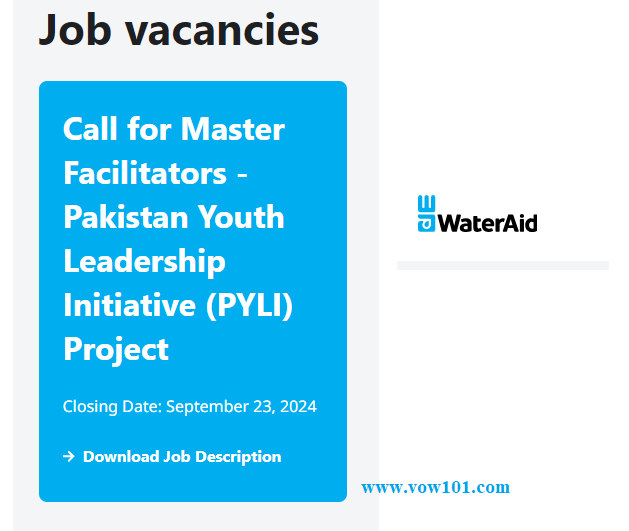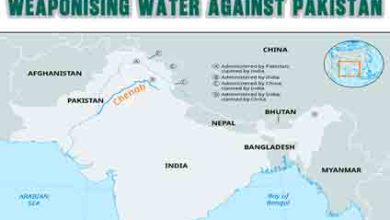WaterAid Calls for Master Facilitators
WaterAid Calls for Master Facilitators youth leadership project 'Pakistan Youth Leadership Initiative (PYLI)
-
WaterAid Calls for Master Facilitators youth leadership project ‘Pakistan Youth Leadership Initiative (PYLI)
-
WaterAid is an international NGO working in 28 countries including Pakistan.
islamabad: The WaterAid Pakistan is launching a new youth leadership project called Pakistan Youth Leadership
Initiative (PYLI). It is a three-year project led by British Council in partnership with Government’s Prime
Minister’s Youth Development Programme, Higher Education Commission (HEC), WaterAid Pakistan, local
CSOs and public universities. The project is co-funded by Qatar based Education Above All Foundation’s
programme “Reach Out to Asia”.

The project will train 90,000 youth from universities and communities in the Global Citizenship Education,
leadership, and Climate Action curriculum. These youth will then go out to their communities to carry out
Youth Led Climate Actions (YLAs), be involved in policy dialogue and advocacy, participate in national and
international climate events, and showcase their successful projects.
The YLAs will focus on the following five thematic areas:
• Tree plantation
• Water conservation
• Renewable energy
• Climate education in Schools and colleges
• Solid waste management
Click for more details, Call for Master Facilitators.







